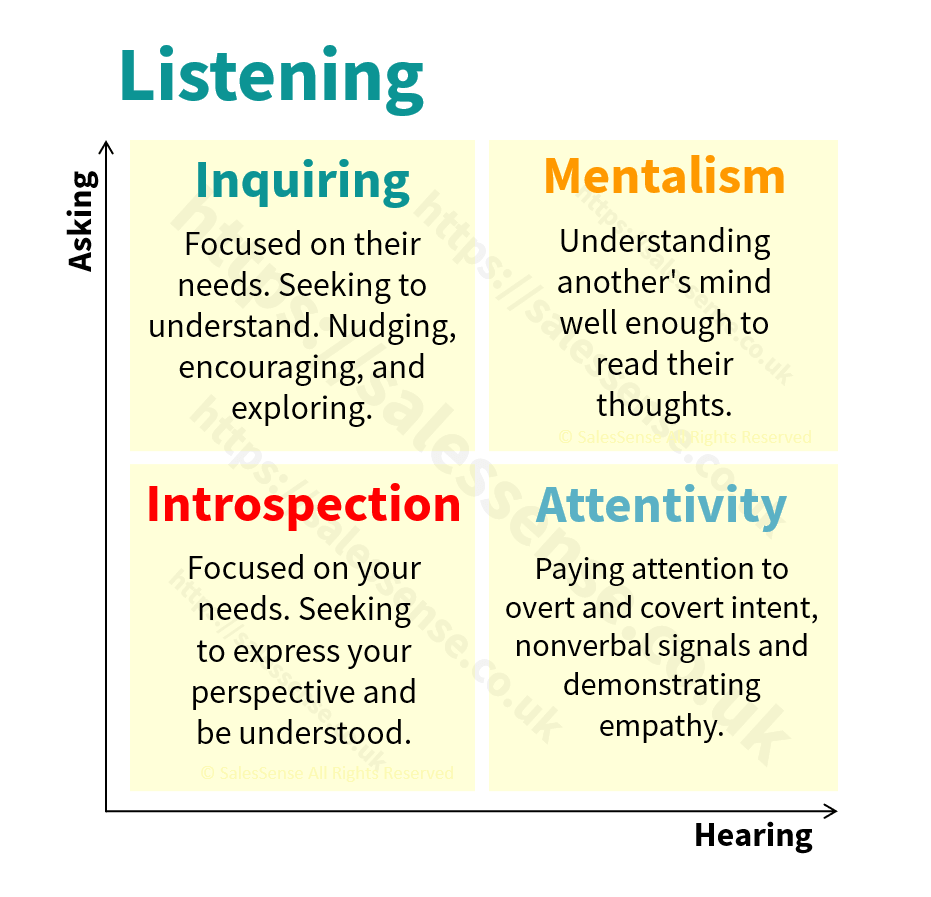Sales communication skills are important. Miscommunication costs money.

Get a copy of Sharon Drew Morgen's new free book and read it to improve your sales communication skills. Sharon Drew shares some of the ideas in this guest article:
Have you ever been absolutely certain you heard someone say something they later claim they didn't say?
Or inaccurately interpret requests from your spouse or colleagues when you could swear you're right and they're wrong?
It’s interesting how mutually defined words end up causing such havoc. Spoken language is a mutable translation system - a best attempt to impart thoughts, feelings, and world views between dialogue partners for the purpose of shared understanding, intimacy, and maintaining relationships.
Senders (unconsciously) choose their words as representative of what they wish to share. Most of the time their communication partners understand them. But sometimes Receivers don't hear a Sender’s message accurately even when they define the words identically causing them to misunderstand or bias what’s been shared, with a potential for a miscommunication.
What’s going on?
When researching my new book (What? Did you really say what I think I heard? – offered free) I spent a year reading 52 books to learn why there is a gap between what’s said and what’s heard. I studied brains, bias, collaboration, filters, AI, and the neuroscience aspects of communication, and learned just how fragile our listening process is.
Before the research, I had naively believed that I accurately heard what others meant to convey most of the time. I was shattered to learn that’s not even possible.
THE REASONS
The problem is our brain. As Listeners, we think there is a direct transmission between words spoken and our interpretation. But the reality is far murkier: just as our eyes take in light and our brains interpret captured images, our ears take in sound and our brains interpret meaning. That means we all see and hear the world uniquely, according to our mental models and filters, and are at the mercy of what our brains allow us to hear, not necessarily what’s said.
During conversations, our brains delete, misconstrue, and misinterpret according to filters – biases, triggers, assumptions, beliefs, habits and mental models – in order to keep us comfortable and maintain our status quo.
Accuracy is not their criterion. And we're left with the residue, assuming our unique interpretation is accurate: not only do we not realize what we think has been said might be inaccurate, we adamantly believe what our brains tell us we've heard is accurate.
Hard to fix when it’s not obvious there is a problem. How, then, do we know when we've misheard? How do we correct a problem we literally can’t get our minds around? We must go beyond our brains.
THE CURE
For us to accurately hear what our communication partners intend to convey we must enter conversations from an ‘observer’ standpoint, allowing us to rise above our filters (I have a thorough discussion on this in Chapter 6 in What?).
Since we can't use the same skills that cause the problem, we must use our physical system to go beyond our brains.
Try this technique:
During conversations stand up (I get permission to walk around during meetings, saying “Do you mind if I walk around so I can think more creatively?”) or lean back against your chair with your feet up. It physically unhooks you from your physiology that causes automatic responses and takes you, instead, to an unbiased place in your brain.
I know this sounds simplistic but try it – it’s an NLP technique that I've used in my training programs and coaching sessions for 30 years. It works. It’s also possible to notice clues in your communication partner that denote ‘misunderstanding’. Visibly, s/he will look confused, or his/her face will go blank or scrunch up. Verbally, you'll hear a response that is not aligned with your response, or there will be a long silence, or a voice/tempo/volume shift, or a ‘What??’
The cues of miscommunication will depend upon the strength of your relationship, of course. The worst result is that nothing is said and the conversation continues as if there has been understanding.
THE PREVENTION
To have more choices when you need them, start with discovering your tolerance to adding new behavior choice:
- Where or when are you willing to have a miscommunication? Are there times you need the choice to ensure you avoid miscommunicating? Times you don’t mind if there is a miss-communication?
- How will you know if/when a problem exists early enough to avoid a defective communication?
- What are you willing to do differently to avoid misunderstanding or misinterpretation? And what happens when you don’t?
The big decision is: are you willing to do something differently to have a higher probability of having an effective communication? Because if you always do what you've always done, you'll always get what you've always got. And just maybe you might need new choices for those times what you're doing isn't working.
Not to change what you're doing, but just add a choice when you need one. Get your free copy of 'Did you really say what I think I heard?' It’s free - to make sure you read it, to help you understand how and why people end up mishearing and miscommunicating.
I also developed some learning tools for those who wish to recognize their communication choices. Should you wish to train your team to learn to hear clients or colleagues more effectively Contact Sharon Drew. Enjoy.
Let me know how this works for you.
Article by Sharon Drew Morgan
If you want to improve sales communication skills or reduce miscommunication, we can help. Telephone +44 (0)1392 851500. We will be pleased to learn about your needs or talk through some options. Alternatively, send an email to custserv@salessense.co.uk for a prompt reply or use the contact form here.












